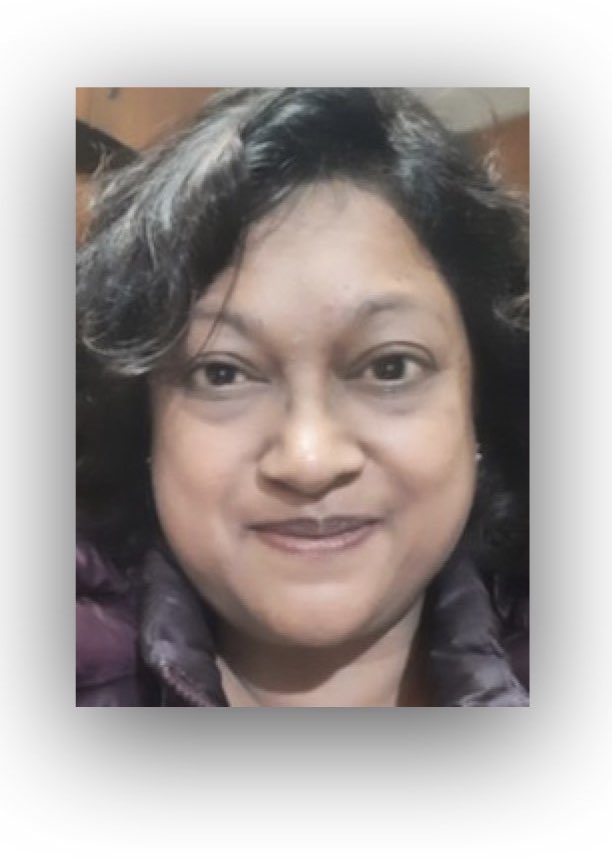Parallel session 1: Tribal Identity and Resistance Narratives (28th February 2017)
Chaired by: Prof. Shreya Bhattacharji, CUJ, Ranchi
Paper Presenters: Violina Borah (JNU, New Delhi), Moumita Roy (Delhi University, New Delhi), Juhi R.V. Minz (JNU, New Delhi), Shabeena Kuttay (Govt. Degree College, Bemina-Srinagar).
Violina Borah presented a paper titled “R/establishing Identity: Reading Violence through Mahasweta Devi’s The Hunt.” The paper explored the endemic nature of violence as depicted in the story and how colonial repressive structures come to be replicated by the colonized. Through the character of Mary, Borah’s paper sought to expose the multiple layers of marginalization that can operate even in a tribal community.
Moumita Roy presented a paper titled “A Comparative Study of Mahasweta Devi’s Aranyer Adhikar and African AmericanTexts.” She sought to highlight the resonances between the narratives of tribes in India and African American narratives. The primary point of reference was the location of bodies, tribal and black at the site of incarceration.
Juhi R V Minz presented a paper titled “Reaffirming the Identity of the Tribal Woman: An Exploration of Mahasweta Devi’s Imaginary Maps” which highlighted how the author exposed the nuances of oppression that tribal women are subject to. The presentation also sought to recover tribal culture from the misrepresentation of mainstream media.
Shabeena Kuttay presented a paper titled “Existence and Identity: The Intellectual Discourse of Arundhati Roy on Tribal Resistance.” The paper pointed to the irony of an independent India which supposedly granted constitutional rights to all its subjects alike, yet threatened the existence of tribal communities in the pursuit of flawed model of growth. It stressed the importance of intellectual interventions to curb the Indian State’s replication of the imperial model of development, leading to the rampant denial of tribal resources which, in turn, translated into a denial of their identity and their very existence.
(Student Rapporteur: Ms. Aateka Khan)

Source: Report for the ICSSR-sponsored Two-Day National Conference Tribes In Transition-II: Reaffirming Indigenous Identity Through Narrative organised by The Department of English & Outreach Programme Jamia Millia Islamia (New Delhi, 27-28 February 2017)
Courtesy Dr. Ivy Hansdak, Assistant Professor, Department of English, Jamia Millia Islamia University New Delhi (email 4 October 2017)
[Bold typeface added above for emphasis]
Find publications by reputed authors (add “open access” for freely downloadable content)
The Indian media is “predominated by the upper castes”—that was the key conclusion of a study conducted by the non-profit Oxfam India and the media watchdog Newslaundry. The report titled, “Who Tells Our Stories Matters: Representation of Marginalised Caste Groups in Indian Newsrooms,” was released on 2 August. It studied the representation of people from different caste groups in the Indian media to document “who has a seat at the table and whose voice has a chance of being heard.” It found that the “Scheduled Tribes are almost entirely absent, whereas the Scheduled Castes are represented mostly by social activists and politicians rather than journalists.” It further noted that Other Backward Classes, or OBCs, “are similarly underrepresented even though they are estimated to constitute over half of India’s population.” […]
Finally, the study examined 12 magazines, ten in English—Business Today, The Caravan, Femina, Frontline, India Today, Organsier, Outlook, Sarita, Sportstar and Tehelka, and two in Hindi—India Today and Outlook. Compared to the rest of the media, the OBC communities were better represented in leadership positions. Upper-caste individuals accounted for nearly seventy-three percent of the leadership positions, and the OBC composition stood at 13.6 percent. However, representation from the Scheduled Castes and Scheduled Tribes remained absent among magazines as well. Further, the report noted that only ten of the 972 articles featured on the cover pages of the 12 magazines under study were about issues related to caste.
The report concluded that the study “provides substantial evidence that vast sections of India’s marginalised caste groups lack access to the media platforms and discourses that shape public opinion, leading to their invisibilisation.”
Source: “English newspapers are worse than Hindi on representing Dalit, Adivasi writers: Oxfam India report”, The Caravan, 3 August 2019
URL: https://caravanmagazine.in/caste/oxfam-india-report-media-representation
Date Visited: 28 July 2024
Brought up in a system in which all communications are by word of mouth, and hence used to trusting verbal statements, tribal populations get confused by constant reference to documents and written rules, which increasingly determine all aspects of rural life.
Tribes of India: The Struggle for Survival >>
Up-to-date reports by Indian journalists and commentators
To search Indian periodicals, magazines, web portals and other sources safely, click here. To find an Indian PhD thesis on a particular tribal community, region and related issues, click here >>
Search tips
Combine the name of any particular state, language or region with that of any tribal (Adivasi) community.
Add keywords of special interest (music, poetry, dance just as health, sacred grove and biodiversity); learn about the rights of Scheduled Tribes such as the “Forest Rights Act” (FRA); and the United Nations “Declaration on the Rights of Indigenous Peoples”, “Universal Declaration of Human Rights”, “women’s rights”, or “children’s right to education”.
Ask a question that includes “tribal” or “Adivasi”, for instance: “Adivasi way of life better?” (or “tribal way of life worse?”)
Specify any particular issue or news item (biodiversity, bonded labour and human trafficking, climate change, ecology, economic development, ethnobotany, ethnomedicine, global warming, hunter-gatherers in a particular region or state, prevention of rural poverty, water access).
For official figures include “scheduled tribe ST” along with a union state or region: e.g. “Chhattisgarh ST community”, “Himalayan tribe”, “Scheduled tribe Tamil Nadu census”, “ST Kerala census”, “Particularly Vulnerable Tribal Group Jharkhand”, “PVTG Rajasthan”, “Adivasi ST Kerala”, “Adibasi ST West Bengal” etc.
In case the Google Custom Search window is not displayed here try the following: (1) toggle between “Reader” and regular viewing; (2) in your browser’s Security settings select “Enable JavaScript” | More tips >>
Note: hyperlinks and quotes are meant for fact-checking and information purposes only | Disclaimer >>